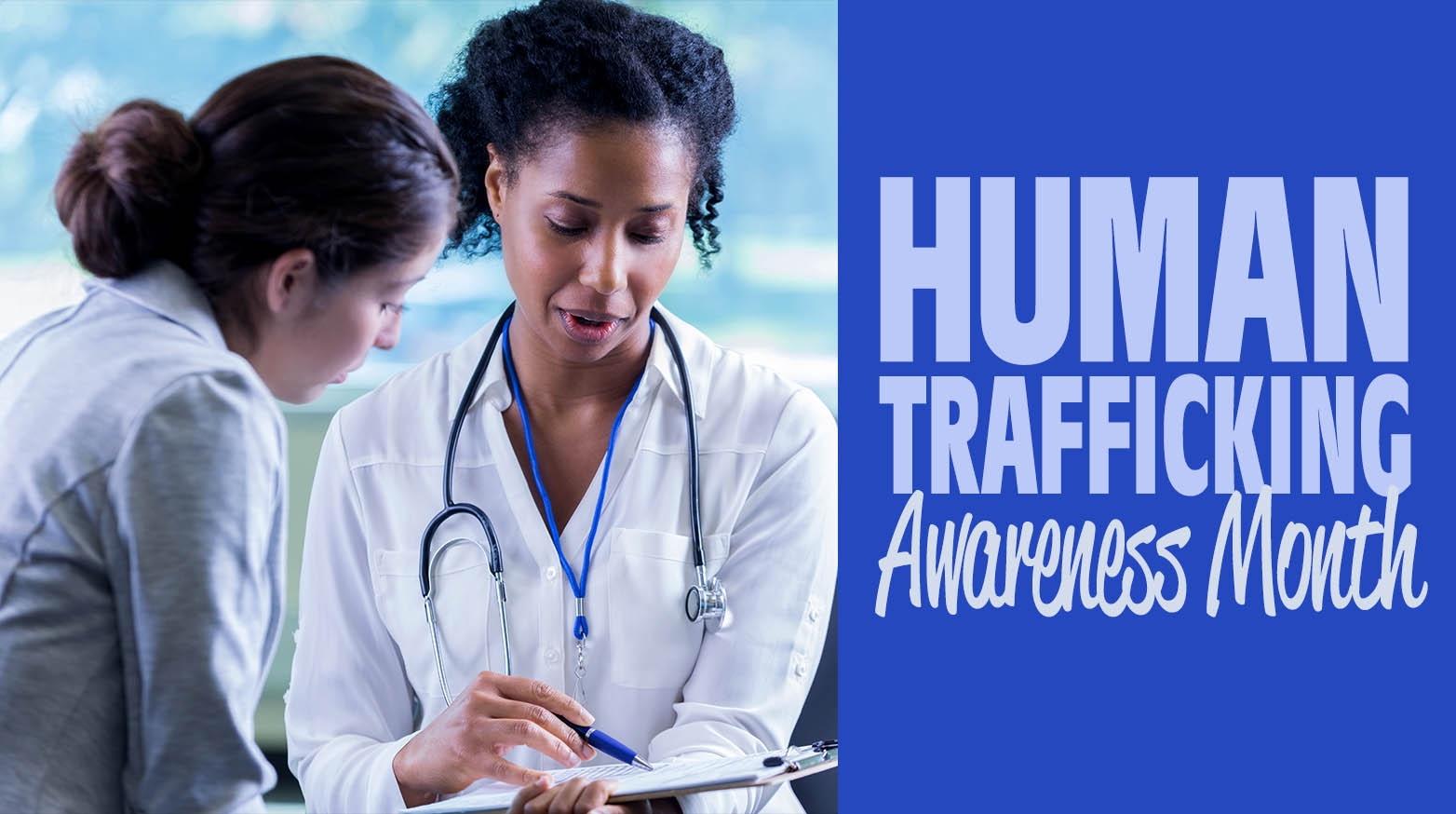It's a New Day in Public Health.
The Florida Department of Health works to protect, promote, and improve the health of all people in Florida through integrated state, county, and community efforts.
Human Trafficking Awareness
January 11, 2018

In support of Human Trafficking Awareness Month and Human Trafficking Awareness Day on January 11, the Florida Department of Health is highlighting the important role that health care providers play in identifying and helping victims of human trafficking, many of whom are minors. It is estimated that more than 20 million men, women and children around the world are victims of human trafficking. Statistics rank Florida as the third highest trafficking destination in the country, with half of all trafficking victims under the age of 18.
Human trafficking is a form of modern day slavery from which traffickers profit from the control and exploitation of others. Criminalized under both federal and state law, it is defined as the transporting, soliciting, recruiting, harboring, providing, or obtaining of another person for transport; for the purposes of forced labor, domestic servitude or sexual exploitation using force, fraud and/or coercion. Victims of trafficking may experience a host of health-related problems and are at high risk of injury, illness and even death from the circumstances of their forced treatment and bondage.
With offices in all 67 counties, victims of human trafficking may likely come into contact with the systems and services DOH provides. Since most victims of human trafficking may have contact with a health care professional during the time they are trafficked, it is crucial that employees in a health care setting have the appropriate training to help identify and assist potential victims.
Basic Human Trafficking Awareness training, produced by the Department of Homeland Security's Blue Campaign, has been made available to all DOH employees. Participants learned how trafficking victims may encounter health care services, how to identify potential victims in a clinical setting and how to identify promising practices for assisting a patient who may be a potential trafficking victim.
Visit the department’s human trafficking page for more information and resources specifically designed to train and assist health care professionals. The additional links offer tips for identifying potential victims of human trafficking, suggested screening questions and a framework for a human trafficking protocol in a health care setting. The resources were prepared by the National Human Trafficking Hotline and the U.S. Department of Health and Human Services.



Connect with DOH